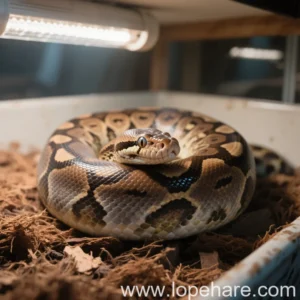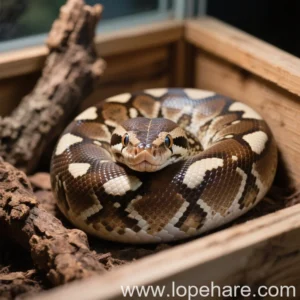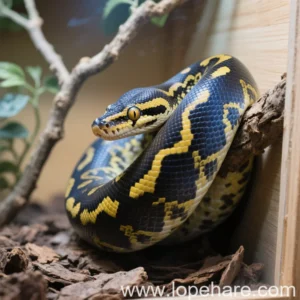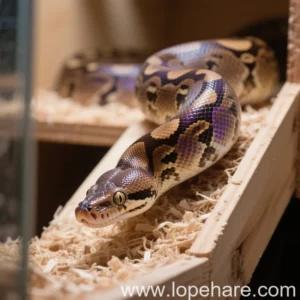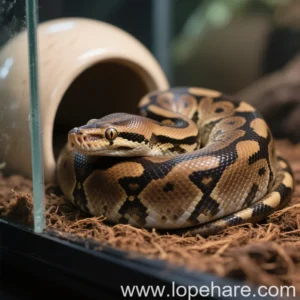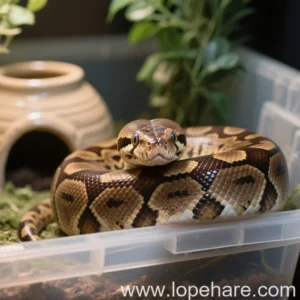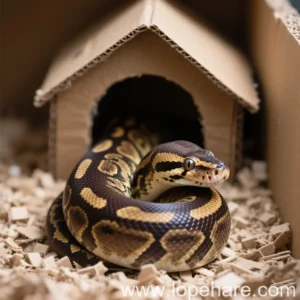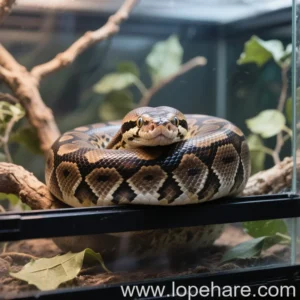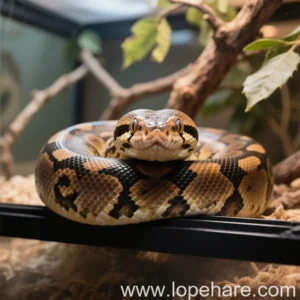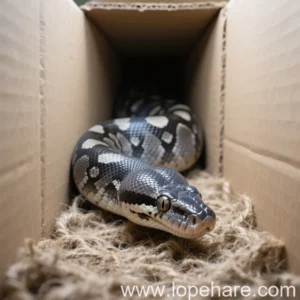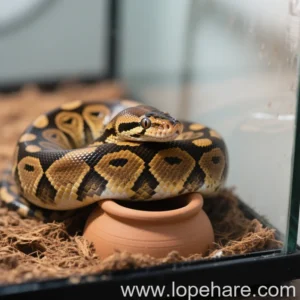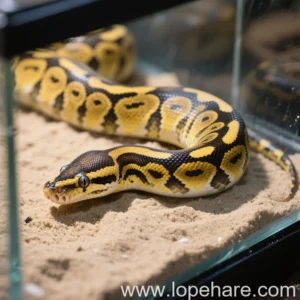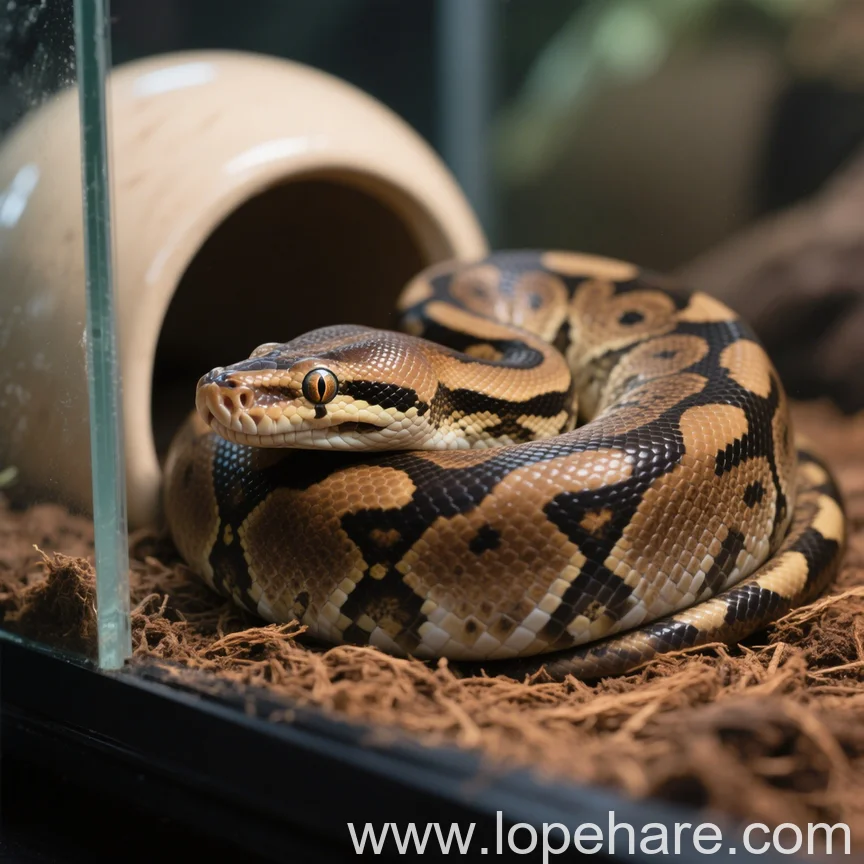
Reptile Ethics
Ball Python Ethics: How to Ensure Your Pet is Legally and Responsibly Sourced
At lopehare, we are passionate about providing comprehensive, professional care knowledge for niche pets like reptiles. When considering adding a Ball Python (Python regius) to your family, one of the most critical, yet often overlooked, aspects is how and where you acquire your snake. Ethical and responsible sourcing is not just about getting a healthy animal; it’s about supporting sustainable practices, preventing illegal trade, and ensuring the welfare of individual animals and wild populations. As editors dedicated to exotic pet well-being, we believe understanding this process is fundamental to being a responsible owner.
Why Ethical Sourcing Matters
Purchasing a pet snake might seem simple, but the journey your ball python takes to reach you can have significant ethical implications. Unethical sourcing practices can contribute to:
- Depletion of wild populations through unsustainable collection.
- Cruel or inhumane treatment of animals during capture, transport, and holding.
- Introduction of diseases into captive or wild populations.
- Support for illegal wildlife trade networks.
- Receiving a sick, stressed, or genetically compromised animal.
Choosing to source your ball python responsibly ensures you are part of the solution, not the problem, contributing to the overall health and sustainability of the species, both in captivity and in the wild.
Wild-Caught vs. Captive-Bred
Historically, many reptiles in the pet trade were wild-caught. While wild-caught animals can sometimes be cheaper initially, they often come with significant disadvantages:
- Stress and Trauma: The process of capture and transport is incredibly stressful for wild animals.
- Parasites and Disease: Wild-caught individuals are far more likely to carry internal and external parasites or other diseases acquired in their natural environment or during transport. Treating these issues can be costly and challenging.
- Difficulty Acclimating: Wild animals may struggle to adapt to a captive environment, exhibit shy or defensive behaviors, and refuse to eat prepared foods.
- Environmental Impact: High demand for wild-caught animals can put immense pressure on wild populations, potentially leading to declines.
In contrast, captive-bred ball pythons are animals born and raised in a controlled environment. They are typically:
- More accustomed to human interaction and handling.
- Less likely to carry parasites or diseases (though still require a vet check).
- More readily accept commercially available feeder rodents.
- Available in a vast array of color mutations (morphs) that do not exist in the wild.
- Their purchase does not negatively impact wild populations.
Recommendation: As editors at lopehare, we strongly advocate for purchasing only captive-bred Ball Pythons. This is the most ethical and responsible choice for both the animal and the environment.
Finding Reputable Breeders & Dealers
Once you commit to a captive-bred snake, the next step is finding a trustworthy source. Reputable sources prioritize the health, welfare, and genetic quality of their animals. Look for:
- Specialized Reptile Stores: Not all pet stores are created equal. Seek out stores that specialize in reptiles, have knowledgeable staff, clean enclosures, and can provide detailed information about the snake’s origin.
- Experienced Breeders: Many dedicated ball python breeders focus on specific morphs or traits but, more importantly, prioritize the health and proper care of their snakes. They should be transparent about their breeding practices, husbandry, and the snake’s history.
- Reptile Expos: These events can be a great place to meet breeders directly. However, do your research beforehand and don’t feel pressured to buy impulsively.
- Reptile Rescues: Adopting from a reputable reptile rescue is an excellent, ethical option. These animals often come with known histories and vet checks.
Understanding Legal Requirements
Ball Pythons (Python regius) are listed under CITES Appendix II, meaning international trade is controlled to prevent over-exploitation. While this primarily affects export/import, it underscores the need for traceability.
Beyond CITES, you must research local, state, and national laws regarding the ownership of ball pythons. Some jurisdictions may have restrictions or require permits. A reputable seller should be aware of these regulations, but ultimately, it’s your responsibility to ensure you are not violating any laws by owning the animal.

Avoiding Pet Mills & Irresponsible Dealers
Unfortunately, not all sources are ethical. Avoid buying from:
- Sources with poor animal conditions: Cramped, dirty, or inappropriate enclosures are red flags.
- Sellers who cannot answer questions: A lack of knowledge about the snake’s age, feeding history, genetics, or basic care indicates a potentially irresponsible seller.
- “Bargain” prices that seem too good to be true: Extremely low prices can sometimes indicate animals sourced unethically, are sick, or come from high-volume, low-care operations (reptile mills).
- Online marketplaces without verification: Be extremely cautious when buying from general online classifieds where the source’s reputation and practices are difficult to verify.
Key Questions for Your Source
Don’t be afraid to ask questions! A good breeder or seller will welcome them. Key questions include:
- Is this snake captive-bred or wild-caught? (Insist on captive-bred).
- What is the snake’s age?
- What is its feeding history (what, when, how often)?
- When was its last shed, and was it complete?
- What are its current enclosure parameters (temperature, humidity)?
- Can I see where the snake is kept?
- What is your health guarantee or return policy?
- Can you provide information about the snake’s parents or genetic background (especially important for morphs)?
Trust Your Instincts: If something feels off about the seller or the conditions, walk away. There are plenty of ethically sourced ball pythons available.
The Long-Term Commitment
Ethical sourcing is just the beginning. Responsible ownership extends to providing impeccable care for the lifetime of your ball python, which can be 20-30 years or even longer. This includes proper enclosure setup, temperature and humidity control, appropriate feeding, regular health monitoring, and having access to a qualified reptile veterinarian. Planning for this long-term commitment is part of the ethical decision to acquire a snake.
Ensuring your ball python care is top-notch is crucial for their well-being and longevity in captivity.
Conclusion: Responsible Ownership Begins at Sourcing
Choosing to own a Ball Python is a significant decision that comes with a responsibility to the individual animal and the broader species. By insisting on captive-bred individuals and sourcing your snake from reputable breeders, specialized stores, or rescues, you are making an ethical choice that supports humane practices and sustainable pet ownership. Do your research, ask questions, and be patient to find the right snake from the right place. Your commitment to ethical sourcing sets the stage for a rewarding and responsible journey with your ball python companion.
References:
